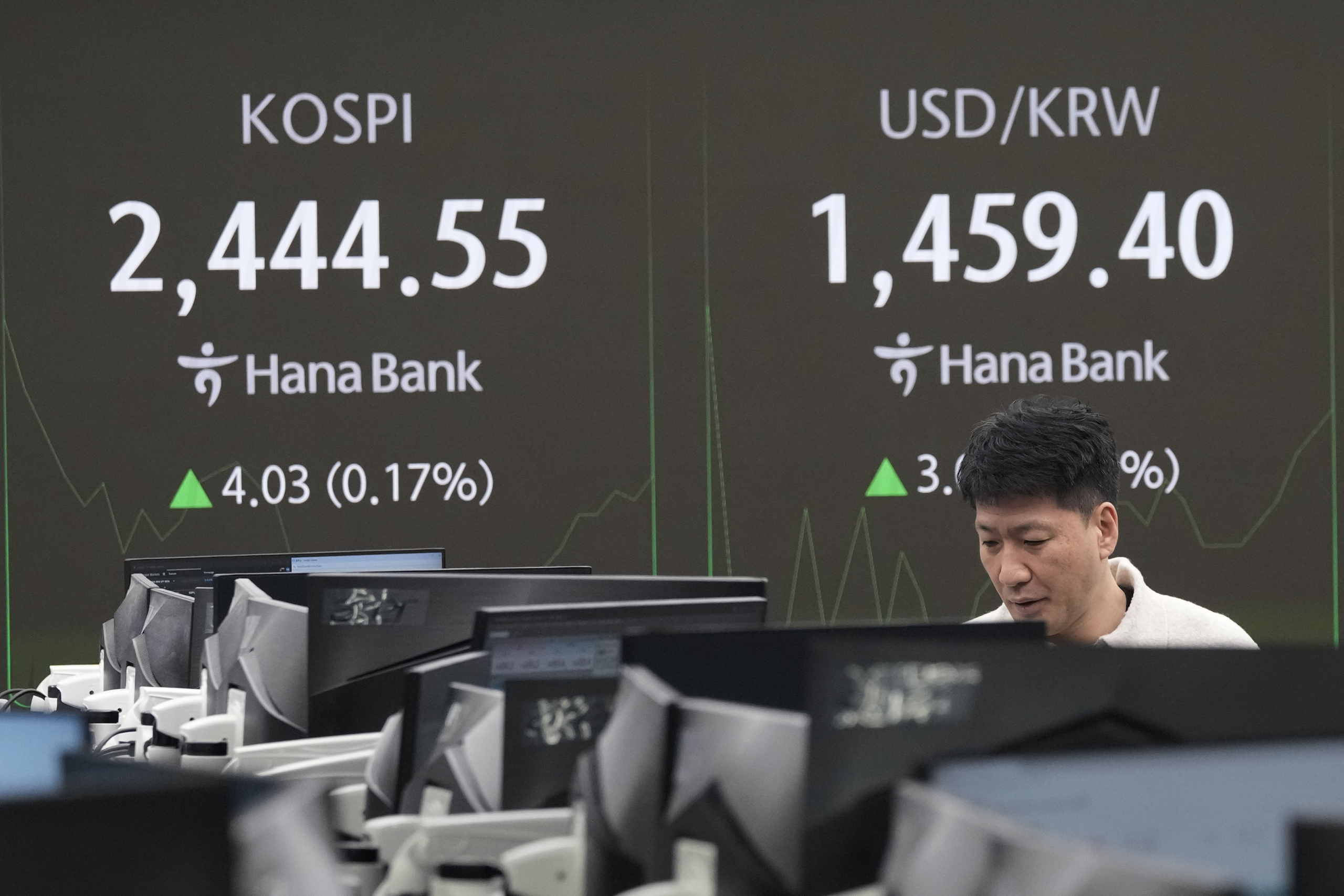Stock market today: Asian shares are mostly higher in thin post-Christmas holiday trading

BANGKOK (AP) — Asian shares were mostly higher Thursday in thin post-Christmas holiday trading, while oil prices rose.
The futures for the S&P 500 and the Dow Jones Industrial Average were 0.2% lower after markets were closed Wednesday for the Christmas holiday.
Japan's Nikkei 225 index surged 1.1% to 39,568.06, on strong gains in retailers and tourism-related stocks after Japan agreed to ease visa conditions for Chinese tourists.
Isetan Mitsukoshi Holdings, a major department store group, gained 7.7%. J. Front Retailing Co., owner of the Matsuzakaya and Daimaru department store groups, jumped 8.3%. Automakers also saw large gains.
China and Japan also agreed Wednesday to conduct talks on contentious security issues and other sources of friction during a visit by Japanese Foreign Minister Takeshi Iwaya to Beijing, where he met with Chinese Premier Li Qiang and Foreign Minister Wang Yi.
South Korea's Kospi slipped 0.4% to 2,429.67, while the Taiex in Taiwan gained 0.1%.
The Shanghai Composite index edged 0.1% higher, to 3,398.08.
Thailand's SET fell 0.1%.
Markets were closed Thursday in Hong Kong, Australia, New Zealand and Indonesia.
U.S. markets will reopen Thursday, when an update on U.S. unemployment benefits is due.
Gains in Big Tech stocks have contributed to a “Santa rally” for Wall Street. The S&P 500 gained 1.1%, while the Dow Jones Industrial Average rose 0.9%. The Nasdaq composite climbed 1.3%.
Also early Thursday, U.S. benchmark crude oil was up 32 cents at $70.42 per barrel. Brent crude, the international standard, picked up 31 cents to $73.48 per barrel.
The dollar rose to 157.34 Japanese yen from 157.19 yen. The euro fell to $1.0396 from $1.0410.
The year's end historically has been a very cheerful season for the U.S. markets. The last five trading days of each year, plus the first two in the new year, have brought an average gain of 1.3% since 1950.
So far this month, the U.S. stock market has lost some of its gains since President-elect Donald Trump’s win on Election Day, which raised hopes for faster economic growth and more lax regulations that would boost corporate profits. Worries have risen that Trump’s preference for tariffs and other policies could lead to higher inflation, a bigger U.S. government debt and difficulties for global trade.
Even so, the U.S. market remains on pace to deliver strong returns for 2024. The benchmark S&P 500 is up 26.6% so far this year and remains within roughly 1% of the all-time high it set earlier this month — its latest of 57 record highs this year.
Breaking news
See all






